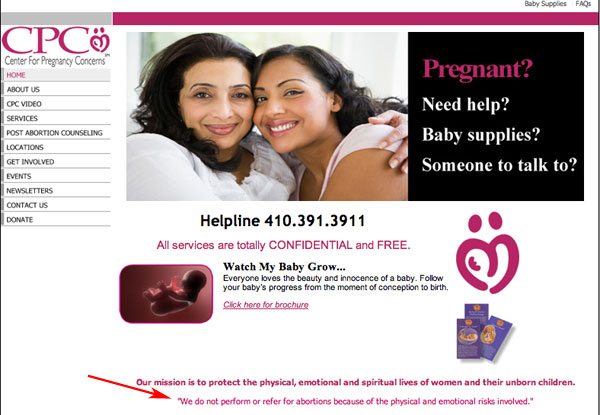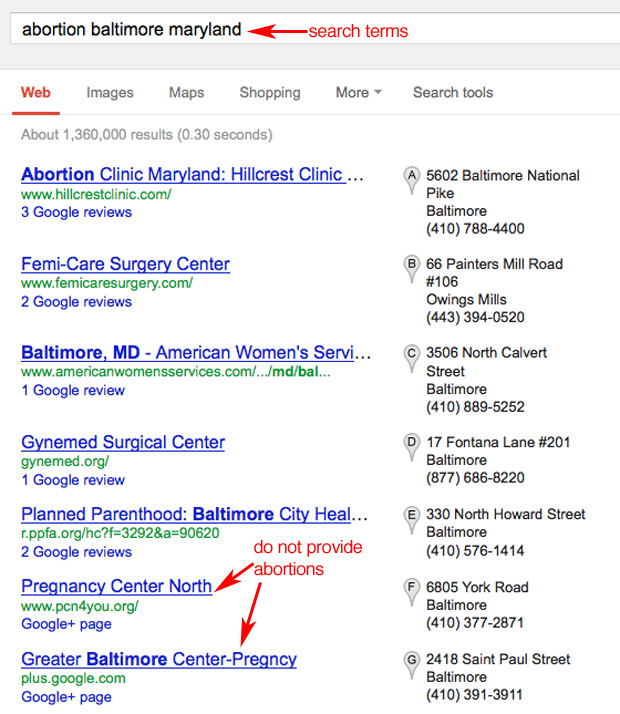
Best Reader Tips of 2021
This year reader tips led to dozens of ad alerts, as well as a complaint to regulators.
July 2013 Update: The Fourth Circuit has overturned the District Court’s permanent injunction against the City of Baltimore’s truth in advertising ordinance.
|
UPDATE July 2013: As predicted, the Fourth Circuit Court of Appeals has overturned the District Court’s permanent A court order that requires a person or company to do a particular act or to refrain from doing a particular act. Example? A court order prohibiting a company from using an ad that’s been deemed deceptive. against the City of Baltimore’s truth in advertising ordinance. In so doing the Court noted that:
the summary judgment decision was laden with error, in that the court denied the defendants essential discovery and otherwise disregarded basic rules of civil procedure. We therefore vacate the judgment and remand for further proceedings, without comment on how this matter ultimately should be resolved.
UPDATE May 2013: Several congressional lawmakers have introduced legislation that will allow the government to investigate pregnancy centers that mislead clients about their abortion services. The bill, known as Deceptive Advertising Women’s Services Act, was introduced in May by U.S. Rep. Carolyn Maloney (D-N.Y.) and U.S. Sen. Robert Menendez (D-N.J.) and would allow the FTC to look into advertising by crisis pregnancy centers that claim to provide abortion care but don’t. Maloney said,
While I defend crisis centers’ First Amendment rights even though I disagree with their view of abortion, those that practice bait and switch should be held accountable so that pregnant women are not deceived at an extremely vulnerable time in their lives.
August 20, 2012: A law passed by Baltimore, Maryland requiring limited service pregnancy centers to post a one-sentence, non-verbal (See Fine Print). in its waiting rooms stating that the centers do not provide or make referrals for abortion or birth-control services is facing a First Amendment court challenge.
The law enacted in December 2009, was premised in part on reports that documented a pattern of deceptive advertising techniques used by some centers to attract women seeking abortions and comprehensive birth-control services. The deceptive advertising techniques included placing ads in the telephone book’s yellow pages under “abortion services” and on the Internet generated by keyword searches of “abortion” and “abortion clinics.”
Three months after it became law, the Greater Baltimore Center for Pregnancy Concerns, Inc., among others, sued the city of Baltimore challenging the constitutionality of the city’s ordinance. The Pregnancy Center argued that having to post the disclaimer sign in its waiting room would violate its free speech, free exercise, and equal protection rights under the First and Fourteenth Amendments of the U.S. Constitution.
More specifically, the Pregnancy Center argued that “by requiring a disclaimer that the [pregnancy] center does not provide or refer for abortions, the ordinance compels plaintiffs to deliver the implied message that these services are available elsewhere and should be considered,” thereby appearing to legitimize such services, in violation of the plaintiffs’ beliefs. Its complaint also objected to the law’s requirement that the Center “post a sign saying that it does not provide birth control services,” when in fact it does “in the form of education about abstinence and natural family planning,” which, according to the Center, are medically recognized means of birth control.
For the city’s part, prior to passing the Ordinance, it obtained a written legal opinion from its Solicitor, which read in part:
[the Ordinance] requires disclosure of factual, truthful, non-misleading information; namely, whether or not abortion or birth control services are provided at a given facility. The [Ordinance] serves the purpose of preventing misleading advertising practices of pregnancy services centers and furthers the City’s interest in ensuring a woman seeking these services in the City is fully informed of what services are available at any given location and can find the services that she needs in a timely manner whether they be abortion or birth control services or any of the many other pregnancy related services that a woman may be seeking. . . . The [Ordinance], therefore, does not violate the 1st Amendment right to freedom of speech.
In January 2011, before either party to the lawsuit had gathered the factual evidence that would be necessary for a trial, the District Court ruled that Baltimore’s ordinance violated the Pregnancy Center’s freedom of speech and entered a judgment permanently banning the enforcement of the Ordinance. The case was appealed to the Fourth Circuit Court of Appeals, which, in a two-to-one decision, affirmed the District Court’s opinion in June 2012.

Two months later, in August 2012, the full Fourth Circuit Court of Appeals (which currently has 15 active judges) agreed to reconsider the City’s appeal. The parties were back before the Fourth Circuit on December 6, 2012. All the judges were on hand to question the parties on whether the case should be sent back down to the trial court for more evidence, or the previous ruling of the three-judge panel should be affirmed.
After the hearing, Matt Bowman, the attorney for Alliance Defending Freedom said:
Pregnancy centers offer real help and hope to women. They provide women with the emotional support and practical resources they need, giving them more choices. They should be free to share that message instead of being compelled to provide the government’s preferred message, which sends women elsewhere. The government should not force them to speak negatively about the important services they provide. The 4th Circuit panel was right to rule against that, and we trust that the full court will agree.
In support of the ordinance, Baltimore Mayor Stephanie Rawlings-Blake said:
The necessity of this consumer ordinance was demonstrated by serious and compelling public testimony and evidence of deception by CPCs in their offers of services. For example, CPCs in Baltimore advertise that they offer, ‘abortion and morning after pills’ when they do not provide or refer for those services. Women and girls seeking pregnancy and contraception services should be allowed to make informed choices about where to go. Having accurate information about what services a center offers is key.
TINA.org’s bet: The decision of the District Court will be set aside, and the case will be sent back down to the District Court in order for the parties to gather all the factual evidence necessary to decide the case based on the evidence gathered. Regardless of who wins the case at the trial court level, there will be another appeal to the Fourth Circuit and possible appeal to the U.S. Supreme Court. Years will go by before the constitutionality of the law is ever determined, and in the meantime, some centers will continue to use deceptive advertising to lure women into their centers under false pretenses.
Around the country, other groups have been taking action against what they feel is false or deceptive advertising regarding pregnancy centers whose mission is aimed at preventing abortions. NARAL Pro-Choice Montana, upset about a coupon distributed to students at the University of Montana that offers a free pregnancy test and ultrasound at Care Net Pregnancy Support Center of Missoula, is planning to ask university students to regulate the way businesses advertise their services on campus. NARAL claims that the coupons mislead women by advertising the free tests to get women in the door who may want to go to the center to terminate their pregnancies. The center, however, doesn’t provide abortions and staff there counsel women against the procedure.
This year reader tips led to dozens of ad alerts, as well as a complaint to regulators.
Supplement MLM takes down dozens of deceptive claims following TINA.org investigation.


